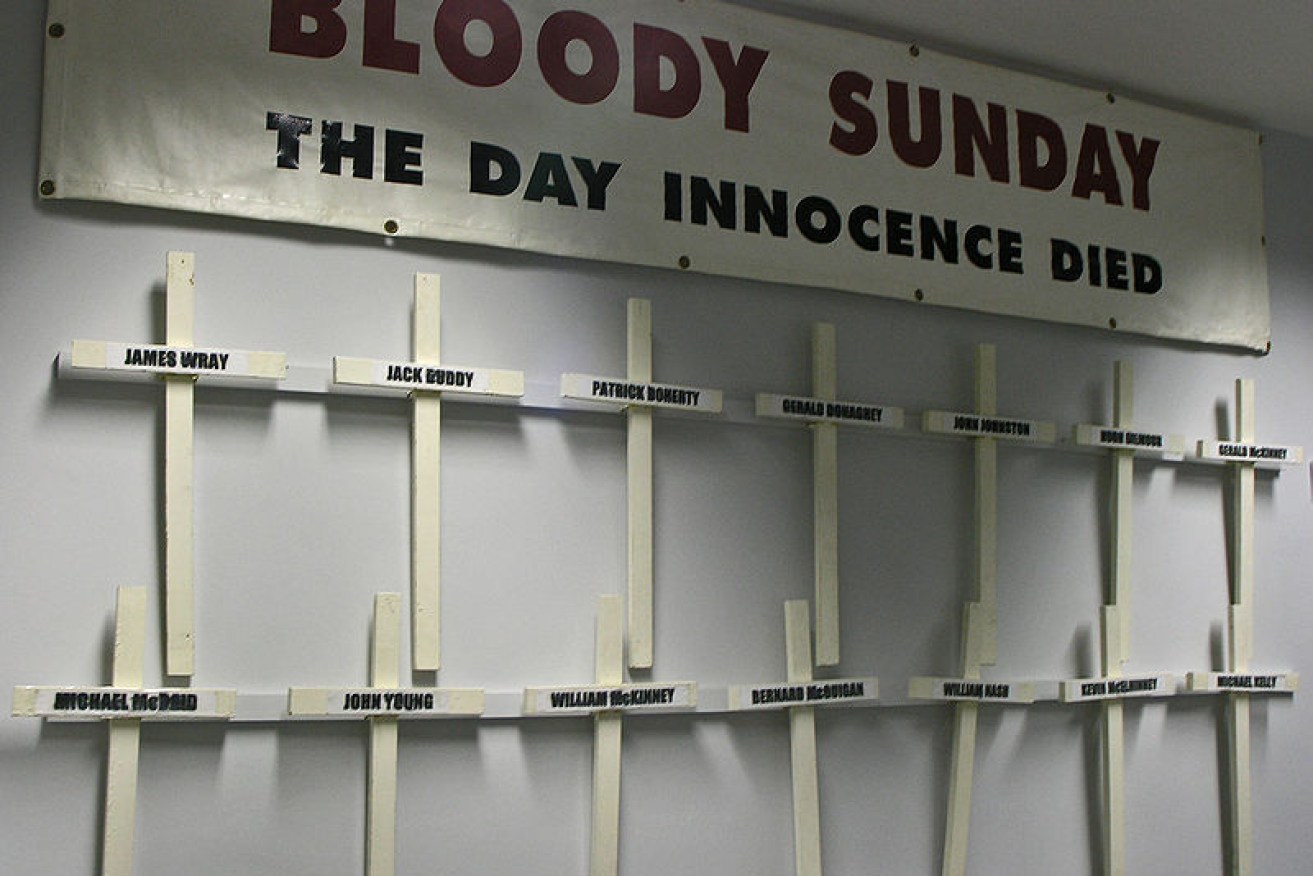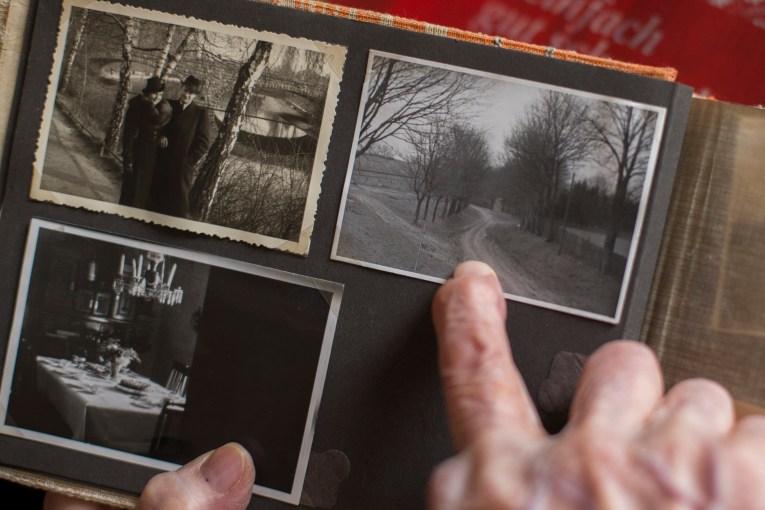Ex British soldier charged over Northern Ireland ‘Bloody Sunday’ deaths


Banner and Crosses carried by the families of the Bloody Sunday victims on an annual commemoration march. Photo: Wikkicommons
A former British soldier faces murder charges over the killing of two civil rights protesters in Northern Island some 47 years ago on one of the deadliest days of the country’s three-decades-long civil war.
On January 30 1972, in what would become known as Bloody Sunday, 13 civil rights demonstrators were shot dead and 15 others were wounded by British soldiers.
The ex-paratrooper, identified as Soldier F, is set to be prosecuted over the killings of James Wray and William McKinney and the attempted murders of Joseph Friel, Michael Quinn, Joe Mahon and Patrick O’Donnell in Londonderry in 1972, Northern Ireland’s Public Prosecution Service (PPS) announced on Friday morning (Australian time).
The victims’ families have vowed to continue their campaign for justice in light of the criminal charges which come more than two years after police referred their findings to prosecutors and almost nine years after the conclusion of the 12-year Bloody Sunday Inquiry.
The PPS said 16 other former soldiers and two suspected ex-members of the Official IRA will not face prosecution.
The inquiry, which was tasked with determining what happened on Blood Sunday, which came to symbolise ‘the Troubles’ in Northern Ireland, found that British soldiers were unjustified in their decision to open fire at unarmed, fleeing civilians and kept on a decades-long lie to investigators about their actions on that notorious day.
While welcoming the news for the six families directly impacted by the decision to prosecute Soldier F – declaring that a “victory” – the campaigners said they would keep fighting for the other dead and injured.
John Kelly, whose 17-year-old brother Michael was shot dead, said: “The dead cannot cry out for justice, it is the duty of the living to do so for them. We have cried out for them for many years, and now we have succeeded for them. Do not deny us justice any longer.”

Families hold photographs of the victims of Bloody Sunday and march through the Bogside in Londonderry, Northern Ireland. Photo: AP
The families had marched together from the scene of the shootings in Derry’s Bogside neighbourhood to a city centre hotel on Thursday morning (local time) to be informed of the PPS’s long-awaited decisions.
Mr Kelly highlighted there were legal means of challenging the decisions not to prosecute.
“The Bloody Sunday families are not finished yet,” he said.
UK Defence Secretary Gavin Williamson confirmed the government would support Soldier F and pay his legal costs.
“We are indebted to those soldiers who served with courage and distinction to bring peace to Northern Ireland,” he said.
But Mr Kelly heavily criticised Williamson’s for his support for measures to potentially protect veterans from historic prosecutions, calling on the authorities to investigate whether his past remarks, and similar comments by other politicians, “broke the law”.
One of the 15 others shot and injured died months later from an inoperable tumour and some consider him the 14th fatality.
Bloody Sunday helped galvanise support for the Provisional IRA early in the Troubles. An image of a Catholic priest waving a bloodstained handkerchief as he tried to help a victim to safety went around the world.
Following the inquiry’s conclusion in 2010, then prime minister David Cameron said the killings were “unjustified and unjustifiable”.
A murder investigation by the Police Service of Northern Ireland (PSNI) followed and files on 18 soldiers were submitted to prosecutors in 2016 and 2017 for consideration.
One has since died. Four other soldiers included in the Saville Report died before police had completed their investigation.
-With AAP








